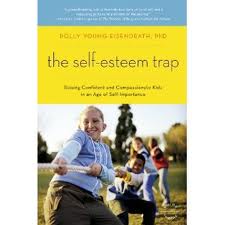In a few hours I’ll be interviewing Dr Polly Young-Eisendrath for Earth School.
Polly is the author of The Self Esteem Trap. Raising Confident Kids in an Age of Self Importance

This is a free call. we’ll be talking about various issues including the rise in teenage suicides.
Attend here at 10pm swiss time, 4pm Eastern
or listen to the replay on the same link.
More information.
What has this call to do with hand analysis?
As a hand analyst, one of the joys of my job is telling people about the many talents and strengths they have that they may not be aware of. Usually this has an extremely positive and motivating effect. People feel seen at a deep level.
But we walk a delicate balance.
This is something that worries me about hand analysis:
If you tell someone they are gifted and they need to be living these gifts and they aren’t, there’s a real danger that the person could walk away feeling deeply shamed or humiliated for not yet living their full potential or being on purpose.
What you tell them about might feel too far away or too unreachable or too overwhelming.
Are we putting too much pressure on our clients without realising it?
Is hand analysis a bit like telling a worm that actually its a butterfly?
And then the worm feels shamed because obviously it has no wings and no clue how to fly.
This is something you need to be aware of and sensitive to when analysing hands.
Just like well-meaning parents, you could be putting your client into what Polly calls “the self esteem trap”.
It helps to guage each person and empower them rather than dis-empower them.
Encourage them to trust in life’s process.
Be gentle on themselves.
There are no mistakes.
The timing is always perfect.
If you miss the boat usually its so you can help someone else catch the next one or you wind up meeting someone else who has other vital information for you. So why beat yourself us unnecessarily?
You can’t make a beautiful tapestry without making lots of messy knots on the underside.

I hadn’t known that you could use hand analysis to help people’s self-esteem in the first place, or if used incorrecly, worsen people’s self-esteem. I like the metaphor of the worm (should be caterpillar) and the butterfly. Sometimes, you can tell people the good, but they may take it the wrong way. Thanks for bringing up these issues. I studied teenage suicide in my health class last year, and it’s a real big issue.
As they come, you said it.
Very well said Jena. Wondeful guideline.